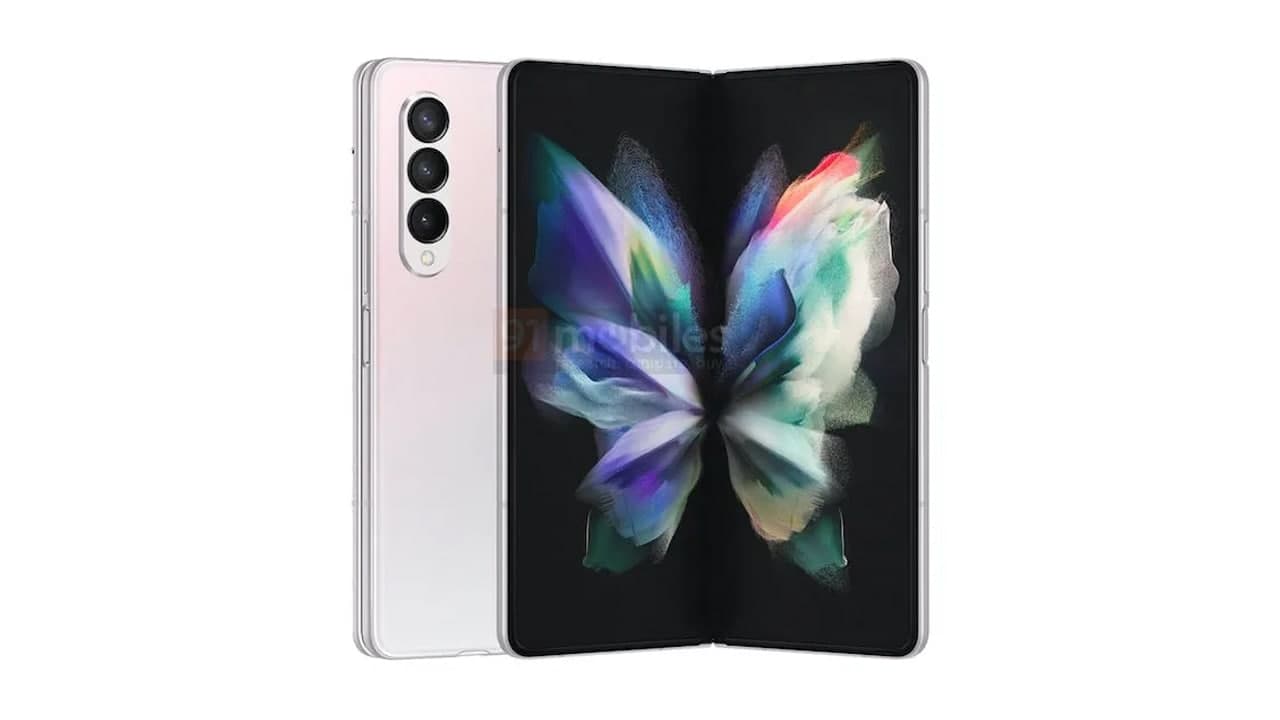News
Samsung Galaxy Z Fold 3, Flip 3 to feature Corning’s new and strong camera glass

Recently, Corning introduced a special Gorilla Glass that is specifically developed for smartphones’ camera lenses, and Samsung is going to become the first brand to use this new camera glass for its upcoming Galaxy smartphones.
It’s not the first time when Samsung’s going to feature Corning’s Gorilla Glass on its smartphones as the OEM featuring this lineup for years. However, the latest glass panel not only protects smartphone cameras from scratches but also comes with anti-reflective properties.
Corning Gorilla Glass DX/DX+
On July 22, 2021, Corning announced a new category for its scratch-resistant and durable glass composite products, Corning Gorilla Glass with DX and Corning Gorilla Glass with DX+. The aim of this product is to enable professional-grade image capture through a unique combination of advanced optical performance.
Furthermore, Corning’s latest camera lens protective panels give 98% of the ambient light to the camera sensor and offer unmatched scratch resistance. Furthermore, the company claims Gorilla Glass DX maintains excellent scratch resistance in everyday use, while DX+ brings excellent scratch resistance performance.
Join Sammy Fans on Telegram
Galaxy Z Fold 3, Flip 3 to debut new Gorilla Glass
As per the timing of the announcement, it looks like the Galaxy Z Fold 3 and Galaxy Z Flip 3 will feature Corning’s Gorilla Glass DX+ and Gorilla Glass DX. It’s confirmed that Samsung will introduce these two new folding phones at the next Unpacked show on August 11.
For its latest flagship devices, the Korean tech giant uses Corning’s new Gorilla Glass Victus, while mid-range and older flagships feature less-premium Gorilla Glass such as Gorilla Glass 3 and Gorilla Glass 5. While the company’s smartwatches equip Gorilla Glass DX and Gorilla Glass DX+ panels on sAMOLED displays.

News
Apple’s RCS adoption unites Android, One UI and iOS users with crazy messaging features

Samsung believes wider RCS adoption unites Android (One UI) and iOS users. The company has been working with Google to evolve the next-gen messaging standard. After a long-standing moral fight, Apple adopted RCS across its products.
Apple iOS now supports RCS messaging standards, uniting iPhone users with Android and One UI users. Samsung and Google together worked hard for RCS evolution and ran a campaign #GetTheMessage to put pressure on Apple.
Text messaging has undoubtedly become a key part of how we connect. Rich Communication Services (RCS) is a modern, interoperable standard that evolved in close collaboration between Google and Samsung.
RCS is quickly becoming the universally adopted, modern messaging standard. As the world becomes more interconnected, this open, collaborative approach across the industry will be a key factor in enabling better experiences for all.
RCS unlocks a world of rich, seamless messaging on Android and iOS devices. As it’s now also available on Apple iOS devices, the key advantages of RCS when messaging between Android and iOS devices include:
- High-quality media sharing: Users can send high-resolution images and videos across Android and iOS devices, making sharing special moments in greater detail and clarity easier.
- Text Reactions: Users can react to messages with emoji or other expressions, similar to social media, making conversations more interactive and personal.
- Enhanced group chats: In group chats, users can add or remove other users whether they use Android or iOS.
RCS unites Android, One UI and iOS
RCS expansion to iOS takes the industry one step closer to a universal seamless messaging experience. Samsung has worked closely with Google for years to establish RCS as a universal standard that improves the messaging experience.
“We’ve been working with Google on RCS for years to provide users with a seamless, connected messaging experience,” said Patrick Chomet, EVP and Head of Customer Experience, Mobile eXperience Business at Samsung Electronics.
Android and One UI have united for years and the partnership is reaching new milestones. As Apple iOS 18 supports RCS, rich messaging features are now available beyond the Android and One UI ecosystem when messaging across platforms.
“We have worked hard for years to make RCS the standard for improved cross-platform messaging, and Samsung has been instrumental in the growing adoption of RCS,” said Sameer Samat, President of Android Ecosystem at Google.
News
Samsung boosts HBM capabilities with new investments

Samsung has reportedly signed a contract valued at around $15 million to sell and purchase semiconductor equipment to expand HBM chip production facilities at its Suzhou plant in China.
BusinessKorea reports that Samsung is expanding its investments across HBM facilities. The company aims to strengthen its advanced semiconductor packaging to lead the supply chain.
Eying the HBM4 chip boom, the Korean tech giant is focusing on enhancing its packaging capabilities to secure future technological competitiveness and narrow the gap with SK Hynix.
KEDGlobal revealed that Tesla asked Samsung and SK Hynix to supply HBM4 samples. The US EV maker could choose either Samsung or SK Hynix as its HBM4 supplier after testing samples.
Pay attention, packaging includes the tech and processes for shaping semiconductor chips to fit the devices they will be mounted on – making it an important aspect of development and production.
Notably, the Suzhou China facility is currently Samsung’s test and packaging production base outside Korea. Increased investment is seen as a choice for innovation in packaging processes and production efficiency.
Apart from this, the company is also ramping up its packaging production bases in Korea. Samsung has recently signed an investment agreement with South Chungcheong Province and Cheonan City.
News
Samsung could get a major role in Tesla’s AI revolution

Tesla reportedly asked Samsung and SK Hynix to supply HBM4 chip samples. Both semiconductor firms are developing sixth-generation high-bandwidth memory chip prototypes for Tesla.
KEDGlobal reports that Tesla asked Samsung and SK Hynix to supply HBM4 chips for general use. It is expected to choose one of the two companies as its HBM4 supplier after testing their samples.
Using custom HBM4 chips made by Samsung and SK Hynix, Tesla seeks to enhance its artificial intelligence (AI) capabilities apart from reducing AI chip reliance on Nvidia.
Samsung is working hard to win Tesla orders for HMB4 chips. The company even working with Taiwan’s TSMC to foster its HBM chip’s development and maintain an edge over SK Hynix.
SK Hynix is also accelerating its development to maintain its leadership in the HBM space. The firm winning Tesla’s HMB orders would see a sharp push in the global memory supply chain.
Notably, the 6th-gen HBM4 chips are crucial for Tesla’s Dojo supercomputer, which is designed for training AI models and will also support its AI data centers and autonomous cars.
The HBM4 semiconductor offers notable enhancements over the previous generations, delivering up to 1.65 Tbps of bandwidth, 1.4 times faster than the HBM3E while consuming 30% less power.












